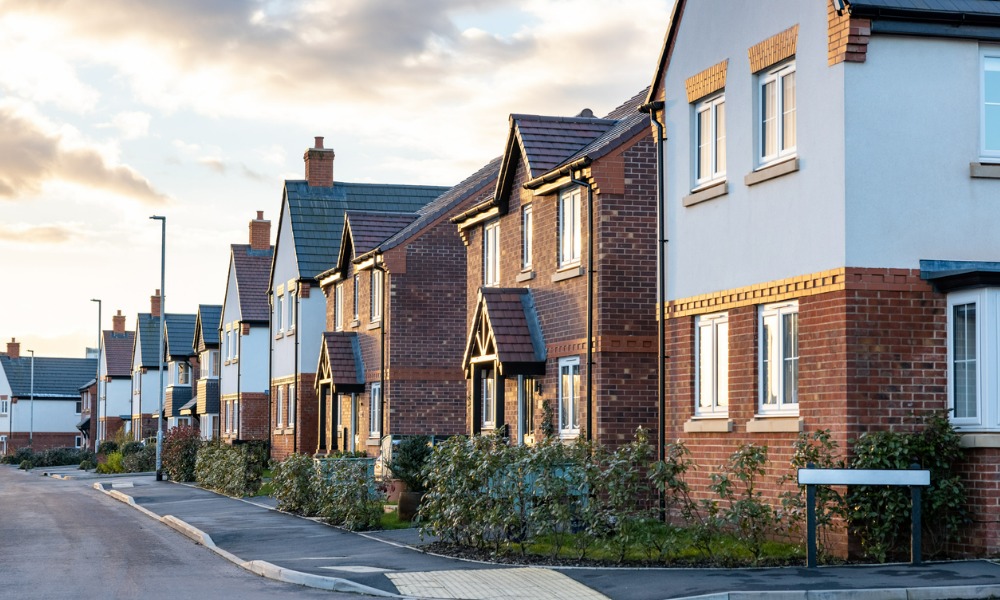Buyers' activities based on fear could produce a crisis

Given the mercurial and unpredictable market, it’s almost become fashionable for people to predict a housing crash. Those taking a contrarian view have been all but ridiculed – particularly among those not understanding the intricacies of the market.
Rebecca Richardson, of UMortgage, is among those who predicted early that a housing crash would not emerge – making the positive prognostication one year ago. “Certainly got some strong opinions on why I was wrong,” she says now with a measure of sarcasm targeting her naysayers. A year after going out on a limb dismissing gloomy housing crash prognostications, she points to growing evidence suggesting the scenario isn’t likely to emerge – despite challenging market forces.
“Recession, inflation, stagflation -- all of it matters, all of it can have a big impact on American households,” she said. “But that doesn’t mean the housing market’s going to crash.”
Take the National Home Price Index, for example
She pointed to the National Home Price Index as evidence of why a housing market crash is unlikely. Compiled and published monthly, the index measures the change in the value of the US residential housing market by tracking the purchase prices of single-family homes.
The index tracks housing prices historically, making allowances for past recessionary periods. “During those recessions – except really around 2008 – for the most part home values continued to increase,” she noted.
The housing market bubble burst in 2008 when subprime mortgages, a massive consumer debt load and crashing home values converged, as recorded in Investopedia. An untold number of homeowners found their homes figuratively underwater – homeowners owing more than their houses were worth – as they defaulted on their mortgages.
“I’m not saying that we won’t see some sort of correction or that some cities, some areas, won’t see declines because some of them have run incredibly too hot,” she said. “However, that does not mean that we’re necessarily headed for a housing crash.”
For the most part, economists share Richardson’s view. Housing economists point to five main reasons why the market isn’t likely to crash anytime soon: a drop in foreclosures; lack of newly constructed housing supply; low inventory; plenty of new buyers; and stricter lending standards.
Apparently, there’s not even so much as a bubble in today’s market. Len Kiefer, deputy chief economist at Freddie Mac, recently explained to Forbes why the US housing market is not currently encased in such a bubble.
“A bubble has three defining characteristics: price growth is driven by speculation, bubbles are fueled by credit expansion, bubbles pop,” Kiefer told the magazine. “While house prices grew at record rates in 2021, the reasons for the increase were not primarily speculation or credit expansion, but rather record-low mortgage rates and a fundamental shift in housing demand.”
Yet some economists believe a bubble could emerge – not contingent on market forces but in disenfranchisement from economic reality based on buyers’ psychology. Shifts in disposable income, cost of credit and access to it, supply disruptions and rising labor and raw construction materials costs are among the economic reasons for sustained real house-price gains, the Federal Reserve Bank of Dallas explained in a report published last year.
Borrowers should not act on fear
“But real house prices can diverge from market fundamentals when there is widespread belief that today’s robust price increases will continue,” the bank’s economists cautioned. “If many buyers share this belief, purchases arising from a ‘fear of missing out’ can drive up prices and heighten expectations of strong house-price gains.”
The Federal Reserve Bank of Dallas warns that this “self-fulfilling mechanism leads to price growth that may become exponential (or explosive), resulting in the housing market becoming progressively misaligned from fundamentals until investors become cautious, policymakers intervene, the flow of money into housing dries up and a housing correction or even a bust occurs.”
This is what’s called “expectations-driven explosive appreciation” or simply “exuberance” in real house prices that can have many consequences, economists warn, including “…the misallocation of economic resources, distorted investment patterns, individual bankruptcies and broad macroeconomic effects on growth and employment.”
Monitoring the housing market in real time for the emergence of such price booms can help investors and policymakers respond before such misalignments become so severe that subsequent corrections create economic upheaval, economists explain.
Bottom line: Don’t invest based on fear. Richardson agrees: “If buying a home made sense to you a year or two years ago, it probably still makes sense,” she says. “But you need to make sure you’re working with a lender and a realtor who can advise you on your options, on the market, so you can make a smart, informed decision instead of one out of fear.”



